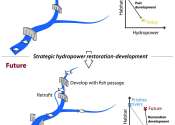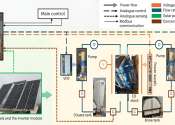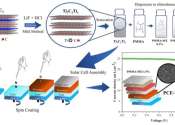Engineers develop a recipe for zero-emissions fuel: Soda cans, seawater and caffeine
A sustainable source for clean energy may lie in old soda cans and seawater. MIT engineers have found that when the aluminum in soda cans is exposed in its pure form and mixed with seawater, the solution bubbles up and naturally ...
Jul 25, 2024
0
100









